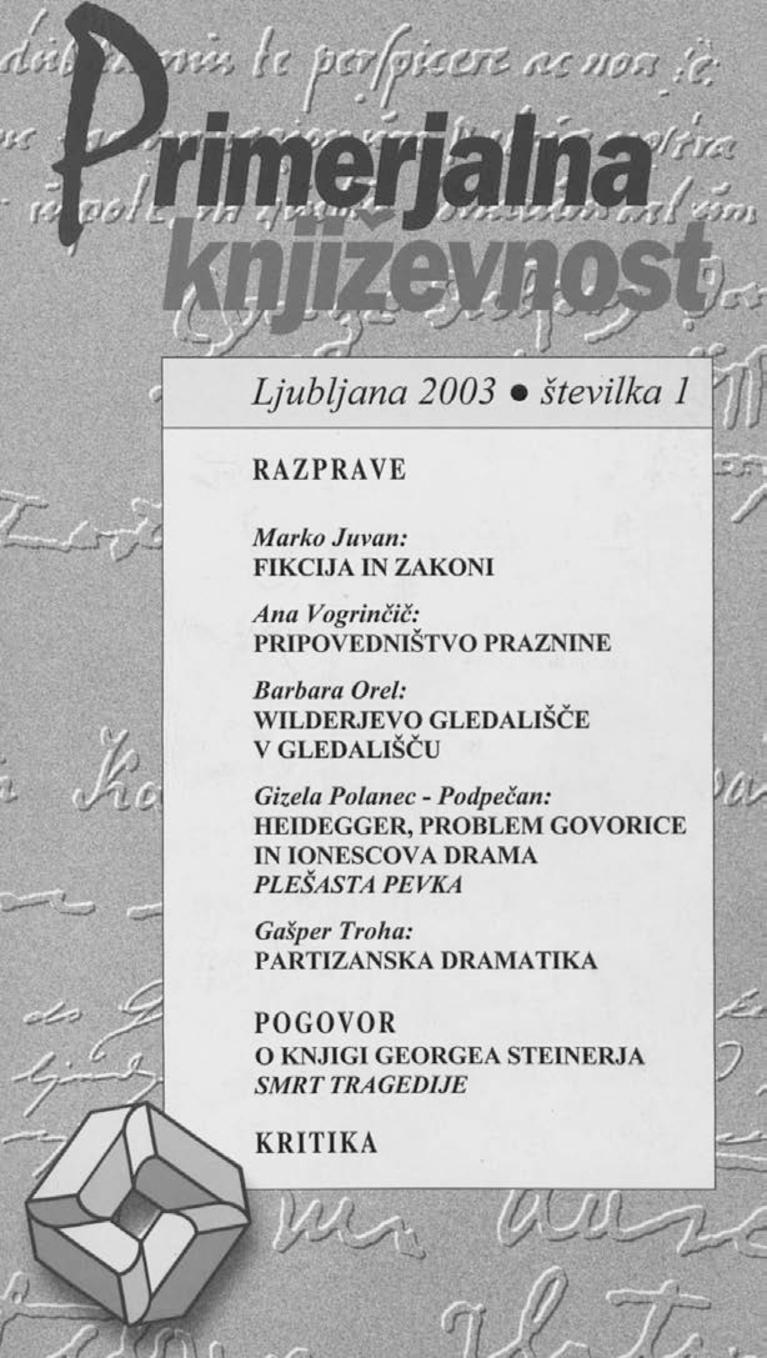Heidegger, the Problem of Speech and Ionesco’s The Bald Prima Donna
Keywords:
absurd, drama of the absurd, Ionesco, Eugène, philosophy of language, language, hermeneutics, Heidegger, MartinAbstract
This reflection on the Ionesco’s play The Bald Prima Donna has tried to capture with a phenomenological approach the issue of speech, which was, due to its specificity, named “the language of absurdity”. Absurd language is one of the elements of “the drama of the absurd”, which dictates the tragic dimension of the play from its outset. In the Ionesco’s drama, to talk absurdity means to put into words the existent in the space and time of the absent being. Therefore, an absurd situation is nothing more than existence emptied to its utmost. The time of this existence is the time of the absent being, therefore human speech cannot address it, it cannot call it into presence. What the speech is left with is absurdity – empty talk that begins and ends in the worn-out phrases of the bourgeois salon. Since there is no way out of an absurd situation, human language itself will continue to disintegrate, disintegrate until unrecognizable, into its meaningless individual phonemes. The role of the counterpart to the void language of existence is played by the speech of being, which is present in the play in the language of symbols, in an almost ritual summoning of things into presence. The only person capable of this kind of speech is the maid Mary, a unique kind of rebel against the constants of existence. Therefore, a majestic cataclysm is her vision of the ultimate purification of the space of existence, which would then be able to open up to being and call it into presence.References
BAUDELAIRE, Charles: Charles Baudelaire, Mladinska knjiga, Ljubljana, 1998, Mojstri lirike.
HEIDEGGER, Martin: Na poti do govorice, Slovenska matica, Ljubljana, 1995.
HEIDEGGER, Martin: Bit in čas, Slovenska matica, Ljubljana, 1997.
IONESCO, Eugène: Plešasta pevka, Cankarjeva založba, Ljubljana, 1995.
PROUST, Marcel: V Swannovem svetu, Cankarjeva založba, Ljubljana, 1987.


